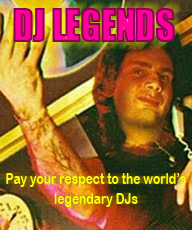Reply to The BPM Conspiracy
The BPM Conspiracy Hi everyone, As i'm starting to produce my own music, I'm facing the process, and I've been believeing a lot recently about one factor that you have to take into account when producing a track. The BPM. We all have here a musical background, obviously, and we know that regarding dance music, a genre has it's tempo, or at least a tempo range we can expect the track to be in. House 124-128 Electro 127-130 Drum and Bass 170-180 Dubstep 140 And so on. When I discovered EDM (may I use the-word-we-shall-not-use ?) something like 8 or 9 years ago (I was 11-12),I was more into electro house and stuff, which has a BPM that varies from track to track. I didn't resist the rise of dubstep/brostep (Shambala 2009 got me hooked) and I couldn't help but to notice that most of the tracks are 140. Just, yeah 140, not even a .1 somewhere or anything. That didn't bother me at all, but I stumbled upon some posts here that were making fun of that fact, because no beatmatching was required to DJ that genre. Now that we've introduced the "conspiracy", let's get to the point. Because I might have a issue finding the right words to illustrate my idea (I lack vocabulary), i'll take an example. Most of electro-house is 128 BPM I. Let's say I'm playing a track at 128, and I plan to pick another one, same genre, and mix it in. I decide to pick a track, which appears to be at 127 bpm. I will beatmatch it to be 128 bpm, of course. Now you should see where i'm going. Our music, "dance music" for the most part, is meant to be played in a club, and therefore by a DJ. For convenience and pleasure of eveyone, it will be beatmatched, meaning if we state that the usual bpm of electro is 128 (50% of the time it's spot on), it's likely that the set will be at 128 (if we ignore genre changes etc.) Therefore, every track picked by the DJ that is not stricly 128 will be beatmatched to it. Here we are. I'm not against tracks that are not 126 for house, 128 for electro, 140 for dubstep. At all. I'm just wondering why someone would create a track that is not the same bpm as the "standard". One answer you might give me is that it's a way to give a certain feeling, groove and identity to the track. To create a "mood". First, I'd say that a 1-2% variation is unperceptible. But let's admit it is : this choice of making something "different" is useless if the track is being beatmatched to the "common bpm" of the genre. Why isn't a bpm defined per genre, 128, 140, 175 then ? It would make things easier for DJs, and won't change anything in what's going out of the speakers. What's your opinion on that ? Do you produce tracks that are sometimes not the "common BPM" for the genre, even if the difference is small (1 or 2 bpm) ? Why did you make that choice ? | |
| You need to login in order to write on our forum |
<< Cancel



